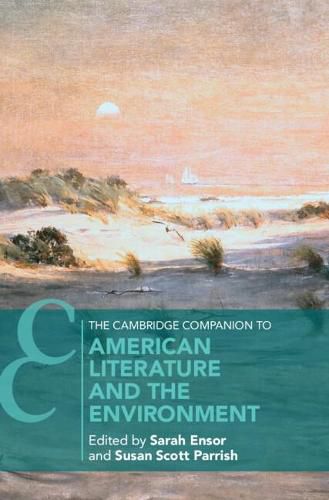Readings Newsletter
Become a Readings Member to make your shopping experience even easier.
Sign in or sign up for free!
You’re not far away from qualifying for FREE standard shipping within Australia
You’ve qualified for FREE standard shipping within Australia
The cart is loading…






This Companion offers a capacious overview of American environmental literature and criticism. Tracing environmental literatures from the gates of the Manzanar War Relocation Camp in California to the island of St. Croix, from the notebooks of eighteenth-century naturalists to the practices of contemporary activists, this book offers readers a broad, multimedia definition of ‘literature’, a transnational, settler colonial comprehension of America, and a more-than-green definition of ‘environment’. Demonstrating links between ecocriticism and such fields as Black feminism, food studies, decolonial activism, Latinx studies, Indigenous studies, queer theory, and carceral studies, the volume reveals the persistent relevance of literary methods within the increasingly interdisciplinary field of Environmental Humanities, while also modeling practices of literary reading shaped by this interdisciplinary turn. The result is a volume that will prove indispensable both to students seeking an overview of American environmental literature/criticism and to established scholars seeking new approaches to the field.
$9.00 standard shipping within Australia
FREE standard shipping within Australia for orders over $100.00
Express & International shipping calculated at checkout
This Companion offers a capacious overview of American environmental literature and criticism. Tracing environmental literatures from the gates of the Manzanar War Relocation Camp in California to the island of St. Croix, from the notebooks of eighteenth-century naturalists to the practices of contemporary activists, this book offers readers a broad, multimedia definition of ‘literature’, a transnational, settler colonial comprehension of America, and a more-than-green definition of ‘environment’. Demonstrating links between ecocriticism and such fields as Black feminism, food studies, decolonial activism, Latinx studies, Indigenous studies, queer theory, and carceral studies, the volume reveals the persistent relevance of literary methods within the increasingly interdisciplinary field of Environmental Humanities, while also modeling practices of literary reading shaped by this interdisciplinary turn. The result is a volume that will prove indispensable both to students seeking an overview of American environmental literature/criticism and to established scholars seeking new approaches to the field.